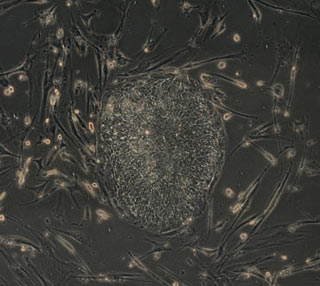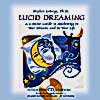| 25 November 2007
|
Relaxation after exercise When we finish any vigorous exercise, we instinctively look for some distraction or stimulus or food or entertainment. Try lying down for 5-10 minutes instead, perfectly still and silent. It is a time pregnant with ideas and visions, as well as good feeling. — Josh Mitteldorf |
| 24 November 2007 |
The Gayatri — a Hindu prayer Om Bhur Buvaha Suvaha O World of physical forms, world of ideas, world of the spirit
Word by word: |
| 23 November 2007 |
Journey and destination We can look upon a road from two different points of view. One regards it as dividing us from the object of our desire; in that case we count every step of our journey over it as something attained by force in the face of obstruction. The other sees it as the road which leads us to our destination; and as such it is part of our goal. It is already the beginning of our attainment, and by journeying over it we can only gain that which in itself it offers to us. This last point of view is that of India with regard to nature. For her, the great fact is that we are in harmony with nature; that man can think because his thoughts are in harmony with things; that he can use the forces of nature for his own purpose only because his power is in harmony with the power which is universal, and that in the long run his purpose never can knock against the purpose which works through nature... The fundamental unity of creation was not simply a philosophical speculation for India; it was her life-object to realise this great harmony in feeling and in action. With mediation and service, with a regulation of life, she cultivated her consciousness in such a way that everything had a spiritual meaning to her. The earth, water and light, fruits and flowers, to her were not merely physical phenomena to be turned to use and then left aside. They were necessary to her in the attainment of her ideal of perfection, as every note is necessary to the completeness of the symphony. India intuitively felt that the essential fact of this world has a vital meaning for us; we have to be fully alive to it and establish a conscious relation with it, not merely impelled by scientific curiosity or greed of material advantage, but realising it in the spirit of sympathy, with a large feeling of joy and peace. from Saddhana — the Realization of Life, by Rabindranath Tagore |
| 22 November 2007 |
The Gratitude Dance Let no preacher tell you to feel glad! You are a paradoxical creature, inclined to resist instruction, to rebel against commandment. Even if in your behavior you may choose to obey, your heart will never comply. Better you should be ordered to be miserable! Today is the start of the season of SAD, not just because our systems are deprived of light, but also because we’re supposed to be merry, because everybody else is merry. Don’t watch this — it will only make you cynical: YouTube video: The Gratitude Dance |
| 21 November 2007 |
Stem cells at last Researchers at University of Wisconsin and at Kyoto University in Japan both announced success this week in reprogramming adult human cells, turning them into stem cells. Even for those of us who think that ‘ethical concerns’ about embryonic stem cells are a red herring, this is great good news. If a patient can be treated with cells that are genetically his own, then damaged tissues of many kinds can be replaced or renewed. This is a fountain of youth. Babies can generate whole bodies from their stem cells. Adults are unable to repair the bodies they have. Think about it — the difference is stark, and difficult to explain. Restraint of the body’s repair capacity is an essential part of the aging program, without which we would not be destined to lose strength or function with age. Stem cells hold promise for regenerating nerves damaged in strokes and spinal injuries, for curing Type I diabetes, addressing Alzheimer’s and Parkinson’s diseases, repairing damaged hearts and livers and regrowing severed appendages. Stem cell research has been set back five years by fundamentalist political influences. From now on, that should no longer be an issue. There is no disease or injury from which we cannot be helped to recover;
no conceptual or theoretical limits to the power of medicine. Nothing
about aging is inevitable. Most of the machinery to support
regeneration remains
latent in our bodies, awaiting only the programmatic triggers that today’s
medicine is learning to provide. |
| 20 November 2007 |
Hellas
THE world’s great age begins anew, A brighter Hellas rears its mountains A loftier Argo claims the main, O write no more the tale of Troy, |
| 19 November 2007 |
How to remember your dreams Shining the light of conscious memory upon your dreams is a rewarding, self-reinforcing process. Gradually, it will yield fascinating insights about the self, as both the inner, fantasy world and the outer self in relation to others will evolve from the mutual interaction. Remembering your dreams is the starting place for learning to have lucid
dreams…in order to be able to recognize your dreams as dreams while they are
happening, you have to be familiar with the way your own dreams work... Getting plenty of sleep is the first step to good dream recall...dream periods get longer and closer together as the night proceeds... We all dream every night, about one dream period every 90 minutes. People who say they never dream simply never remember their dreams. You may have more than one dream during a REM (dream) period, separated by short arousals that are most often forgotten...[Usually] dreams are not recalled unless the sleeper awakens directly from the dream... It can be useful while you are developing your dream recall to keep a complete dream journal. Keep the journal handy by your bed and record every dream you remember, no matter how fragmentary… When you awaken in the night and recall what you were dreaming, record the
dream right away.
[Dream
experiences grow directly from emotional energy, and follow only their
internal logic, which waking consciousness may override or distort.] Write
down the precise content of any dialogue from the dream, because words will
almost inevitably be forgotten in a very short time. Possibly, all you will need to do to increase your dream recall is to remind yourself as you are falling asleep that you wish to awaken fully from your dreams and remember them...It may help to tell yourself you will have interesting, meaningful dreams. [The power of suggestion, repeated over time, will open a channel of communication between your outward consciousness and the inner dream world.] A major cause of dream forgetting is interference from other thoughts competing for your attention. Therefore, let your first thought upon awakening be, “What was I just dreaming?” …Do not think of the day’s concerns, and do not move from the position in which you awaken. — from a page on lucid dreaming by Stephen LaBerge |





